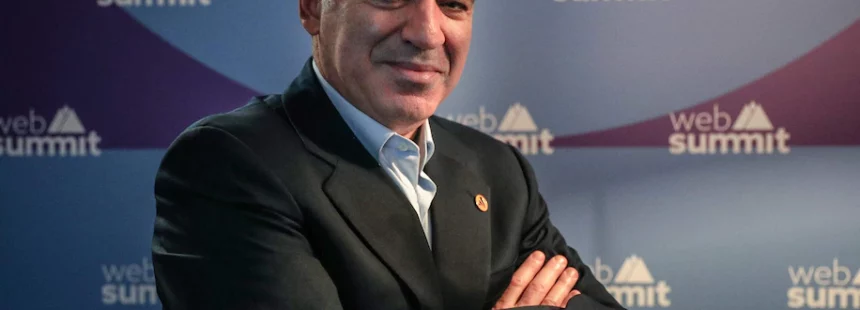

Q&A with @JRubinBlogger and @Kasparov63: How foreign dissidents can help renew U.S. democracy https://t.co/hDxdtWWLn5
— Washington Post Opinions (@PostOpinions) December 1, 2021
This article is a reprint. You can read the original column at The Washington Post.
By Jennifer Rubin
“The Renew Democracy Initiative, a nonpartisan and nonprofit organization, has been on the front lines of the battle to preserve American democracy since its founding in 2017. Its newest project: Using dissidents from oppressive countries around the world to highlight America’s veer toward authoritarianism.
What follows is our conversation, edited slightly for length and style:
Rubin: Why did RDI believe the experience of foreign dissidents could help promote American democracy?
Kasparov: Foreign dissidents benefit from two things Americans by and large lack: personal experience resisting authoritarianism, and the ability to look past partisan politics and see threats to democracy for what they are. In some ways, you can call them the global experts on how authoritarian tendencies spread through society and how democratic institutions crumble. We’d be crazy not to consult them.
They can’t be accused of having a dog in the partisan fight. They have nothing to gain and, if American democracy falls, everything to lose. Most importantly, they want to help Americans see the U.S. through their eyes. During the darkest days of their struggles, American democracy often inspired them. RDI launched Frontlines of Freedom in the hopes that their stories might now inspire us.
Rubin: To what degree is the United States’ current situation a reflection of worldwide trends, and to what extent is it uniquely American?
Kasparov: From 1990 to 2008, the world experienced one of the greatest increases in prosperity and freedom that it’s ever known. However, during that time period, democratic nations assumed that liberal democracy had essentially won the narrative war and failed to make a case for it. Needless to say, history did not end because evil does not die. It might stay dormant under the rubble of the Berlin Wall for a while, but inevitably, it will reemerge. Meanwhile, because most free nations did not offer a sufficiently strong defense of democratic values on their own merits, many people supported democracy only so long as it brought economic prosperity. As soon as the financial crisis hit in 2008, everything changed.
Wealthier democracies had to begin dealing with a public backlash to automation, immigration, an increasingly interconnected world and rapidly evolving social values. In most industrialized democracies, this has led to the rise of radicalism on both the left and right, though the far right has enjoyed a particularly powerful resurgence. Ultimately, both sides promise simple answers to the complex problems facing liberal democracies. Their answers are more satisfying and easier to understand than the answers offered by more moderate groups. That’s what makes them so dangerous.
The current situation in America is a local version of the broader global crisis. Each nation has its own unique history and culture which helps determine the exact contours its conflict will take. But the underlying forces remain the same.
Rubin: What can we learn from other countries about the necessity for and means of forging cross-partisan coalitions in defense of democratic institutions and values?
Kasparov: Dictators know that divided societies are easier to subdue, so their goal is to sow dissension. Unfortunately, they often succeed. The key is for us to recognize three things: First, that we are going to have to work with people we may not like; second, that we’ll have to prioritize the broader struggle for democracy over our personal policy preferences; and third, ego is the enemy of unity.
The Spanish Civil War offers us a cautionary tale. In the late 1930s in Spain, moderates were essentially sidelined and society was ripped apart at the seams by fascists and communists. This reminds us that any movement we build in defense of democracy must be inclusive. We need to avoid purity tests and welcome people with a wide range of political views. Ultimately we need to prioritize the survival of democracy over all else. In chess, when your king comes under threat, you don’t think about what you’re going to do during the endgame; you focus on dealing with the immediate danger. We should approach democracy the same way.
Rubin: How big of a problem is social media?
Kasparov: Social media is a democratizing force, allowing anyone with an Internet connection to put out whatever information they want into the world and also to consume whatever information they want. This of course is both a problem and an opportunity.
We’ve all heard about its harms — that it allows people to live in information silos hearing only that which will reaffirm their preexisting beliefs; that it not only allows for the spread of misinformation, but actually algorithmically promotes false or misleading information more than the truth; that it represents yet another weapon in a dictator’s tool kit against dissidents and the free world. All of these are of course incredibly dangerous, and there’s a certain irony to dictators using technology that was developed in the free world to attack the free world.
But ultimately, social media is a tool like any other. It can be used for both good and ill. Much in the same way that dictators have been able to weaponize it to attack democratic countries, democracy activists can leverage it to get around authoritarian restrictions, organize themselves, share information, protest, etc. [Russian dissident Alexei] Navalny was using social media to great effect in Russia. His video about Putin’s secret palace garnered over 100 million views and sparked a rare conversation in Russia. YouTube should never have agreed to take down Navalny’s videos in Russia. Meanwhile, Twitter may well have been justified in banning [former president] Donald Trump, but why were Iranian mullahs allowed to continue using the platform?”

